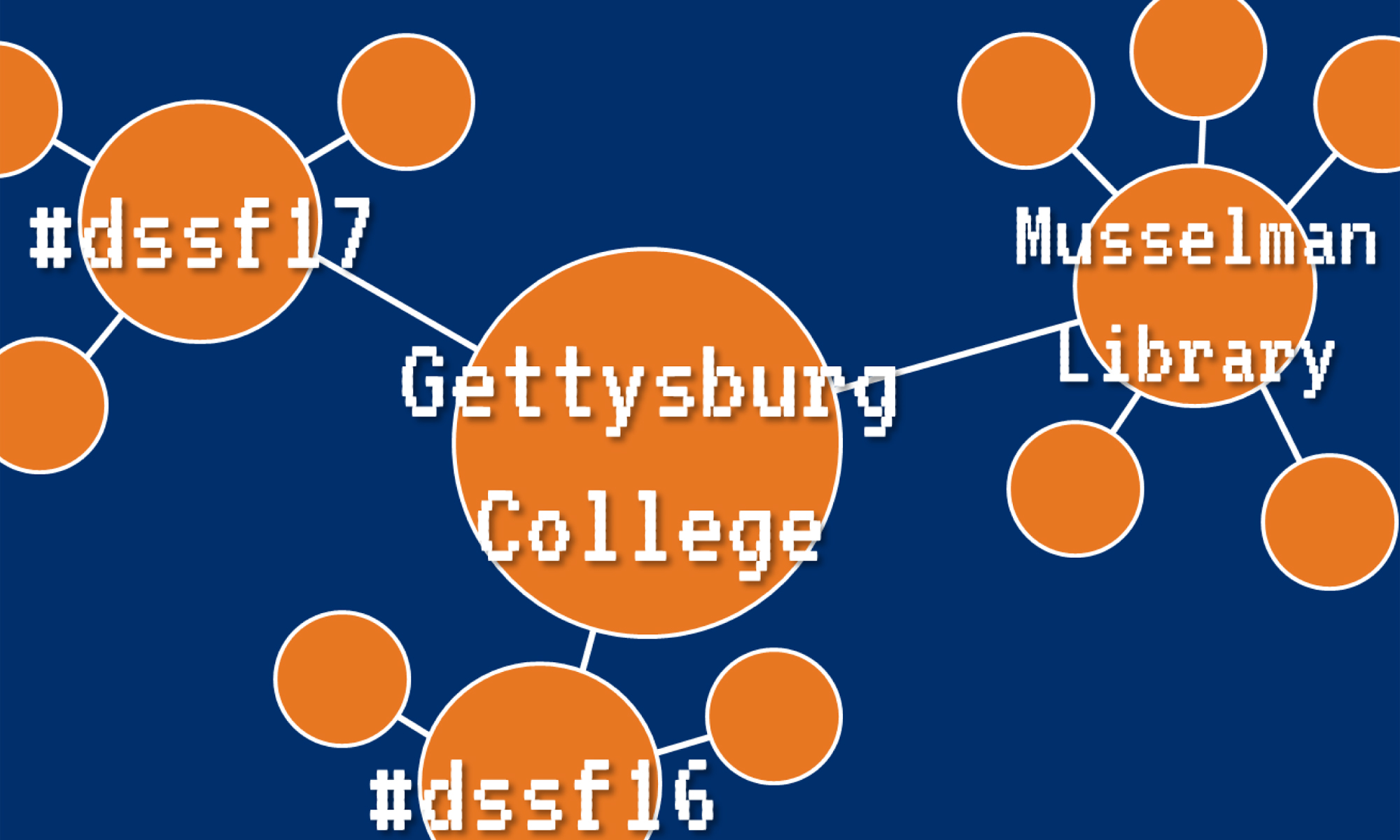I found Ryan Cordell’s article, “How Not to Teach Digital Humanities,” to be particularly refreshing because he did not shy away from addressing a number of things I’ve experienced when I try to mentor fellow undergrads (or in my own undergraduate experience in DH). His assertion, “that we must work to take both undergraduate disinterest and graduate resistance as instructive for the future of DH in the classroom,” is incredibly important. It’s tempting to ignore undergraduate apathy, or to gloss over it by idealizing digital humanities as being a brand-new and flawless alternative to traditional scholarship, but doing so further alienates undergraduates and hinders the constructive development and growth of the field. In thinking about this blog post, I reflected on my now year-long experience in DH and developed a few hypotheses about why Gettysburg undergraduates haven’t engaged with digital projects.
I entered the field of DH last summer as a digital scholarship summer fellow. As such, my sole focus for ten weeks was digital scholarship–both the theory behind the field and how I could apply the theory to transform and present my own personal research interest. Initially, the field was scary; I was wandering into unfamiliar territory and working with previously unheard of tools. However, I had the resources and time I needed to work my way through the field and produce a project I was proud of. The “so what?” of digital humanities became clear to me–I felt like I was making a difference and potentially educating others.
Unfortunately, I do not think that most undergraduates who are assigned digital projects at Gettysburg over the course of the school year feel the same as I did at the conclusion of last summer. In my opinion, (and from what I know from my experience), the number one reason why undergraduates don’t engage with the digital humanities is because they do not have the time that they need to immerse themselves in the field during the semester. Consequently, they miss the all important “so what?” that validated my summer research and brought me back to the program as a senior fellow. When students are asked to complete digital projects during the school year, they are often rushed, stressed, and not necessarily interested in the project that they’ve been asked to complete. Under these conditions, time is budgeted according to priority. A major reason why Julia, Keira, and I chose to do the fellowship last summer was because we were passionate about our self-selected research topic. Prioritizing digital tools and facets of DH theory was worth it for the sake of actively engaging with and educating others on a topic we cared about. Our projects were also interminable–we were prepared to return to them and continue their life. It is unlikely that a student would feel the same way about a project assigned to their class. Ordinarily, the project would be an item on a checklist, completed for the sake of a grade, and then left once the project was over.
As discouraging as this may seem, I do think that there is a concrete way to bridge undergraduates and the digital humanities–involving more undergraduates in programs like the digital scholarship fellowship, and giving undergraduates representation within DH. Julia, Keira, and I all understand the challenges that may prevent a student from involving themselves in DH for the sake of a school project. However, we also know all of the benefits of being a DH practitioner, and why introducing and using digital tools is so important. Accordingly, we lower the barrier of entry by showing the student that one of their peers was able to create a project, and can provide them with feasible advice and scope for their own work. Additionally, it is important for more and more undergraduates to share their experiences and projects at conferences and within their colleges or universities. Too often, undergrads are mentioned at conferences, but are not there themselves. Fellow non-undergraduate DH practitioners can gain realistic insight by hearing from students, and undergraduate researchers see themselves represented, which is important for developing interest in the field and forming a functioning community of practice.

Thank you for your thoughts. The challenge continues to be finding ways to make DH projects a more central focus of courses, and not tacked-on assignments that aren’t part of the main focus of the course. This requires a lot of rethinking of how to structure courses, grade assignments, track progress, and it can be tough for faculty to do this because of all the pressures on them.
It’s also valuable for faculty to get involved in not only assigning these projects, but getting invested in the technology and methodology, so their students see them excited about the work. But thankfully, interest from students can help shift faculty thinking, and really appreciate all you have done to support faculty over the last academic year and this summer.